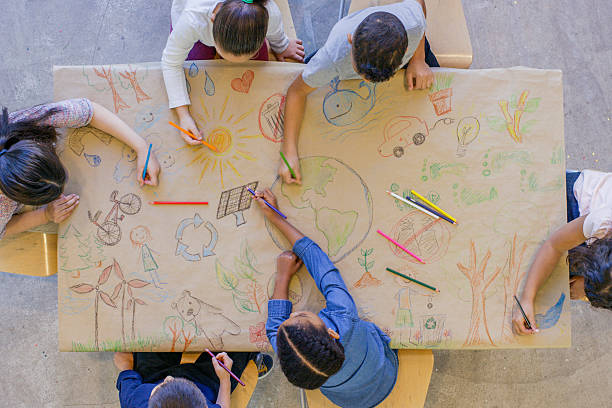Social Skills Development in Preschool: Key Strategies and Activities

Social skills are the foundation of a child’s ability to form relationships, navigate social settings, and interact positively with others. In preschool, where children are often exposed to group settings for the first time, the development of social skills such as sharing, empathy, and teamwork becomes crucial. By focusing on these skills early on, preschools can help children build the confidence and interpersonal abilities they need to succeed in both school and life.
At San Marino Preschool, we recognize the importance of nurturing social skills in young children. Our curriculum is designed to create a supportive and inclusive environment where children can learn and practice essential social behaviors. Here are some of the key strategies and activities we use to foster social skills development in our preschoolers:
- Cooperative Play Activities:
- One of the most effective ways to teach social skills is through cooperative play. We organize activities that require children to work together towards a common goal, such as building a tower with blocks or completing a group art project. These activities encourage children to communicate, share materials, and collaborate, which naturally develops their teamwork skills.
- Role-Playing and Social Stories:
- Role-playing and social stories are powerful tools for teaching empathy and understanding social situations. In our classrooms, we often use role-playing scenarios where children act out different social situations, such as helping a friend who is feeling sad or inviting someone to play. This helps children practice empathy and learn appropriate social responses in a safe and controlled environment.
- Circle Time Discussions:
- Circle time is a daily ritual where children gather to discuss their feelings, experiences, and ideas. During these discussions, we encourage children to listen to each other, take turns speaking, and express their thoughts respectfully. This practice not only builds communication skills but also fosters a sense of community and mutual respect among the children.
In addition to these strategies, we also incorporate structured activities that specifically target the development of key social skills:
- Sharing Games: We use games that require children to share resources, such as passing a ball or taking turns with a favorite toy. These games teach patience, fairness, and the joy of shared experiences.
- Team-Based Challenges: We organize team-based challenges that require children to work together to solve a problem or complete a task. Whether it’s a simple puzzle or a more complex group project, these challenges help children learn the value of teamwork and cooperation.
- Empathy Exercises: We conduct exercises that help children understand and empathize with others’ feelings. For example, we might use emotion cards to discuss different feelings and ask children how they would help a friend who is experiencing those emotions.
In conclusion, the development of social skills is a fundamental part of early childhood education. By incorporating activities and strategies that promote sharing, empathy, and teamwork, preschools can create an environment where children learn to interact positively with others and build strong, healthy relationships. At San Marino Preschool, we are committed to supporting each child’s social development, ensuring that they are well-prepared for the social dynamics of school and beyond.
Recent Comments